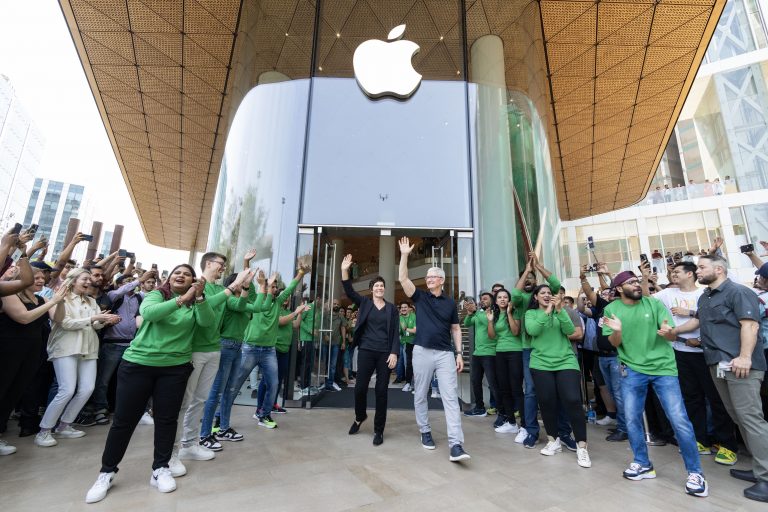
President Donald Trump has escalated his campaign against corporate diversity initiatives, calling on Apple to comply with his executive order to dismantle Diversity, Equity, and Inclusion (DEI) programs.
The president’s demand comes despite Apple’s shareholders voting overwhelmingly to keep these initiatives in place, raising questions about whether the tech giant will stand firm or eventually yield under government pressure.
Trump, who has already influenced several major corporations to roll back their DEI commitments, took direct aim at Apple in a post on Truth Social.
Register for Tekedia Mini-MBA edition 19 (Feb 9 – May 2, 2026).
Register for Tekedia AI in Business Masterclass.
Join Tekedia Capital Syndicate and co-invest in great global startups.
Register for Tekedia AI Lab.
“APPLE SHOULD GET RID OF DEI RULES, NOT JUST MAKE ADJUSTMENTS TO THEM. DEI WAS A HOAX THAT HAS BEEN VERY BAD FOR OUR COUNTRY. DEI IS GONE!!!” he said.
The administration has framed these programs as discriminatory, arguing they disadvantage individuals who do not belong to historically marginalized groups. The White House has also signaled that companies failing to comply could face legal action, with Trump suggesting that the Department of Justice (DoJ) could investigate whether such initiatives violate federal anti-discrimination laws.
Apple’s Shareholders Reject Push to End DEI
Apple has long championed diversity initiatives, and this week, its shareholders reaffirmed their support for DEI efforts. At the company’s annual meeting, a proposal titled “Request to Cease DEI Efforts” was overwhelmingly rejected, with 8.84 billion votes against and just 210.45 million in favor.
The proposal, submitted by the conservative think tank National Center for Public Policy Research, was part of a broader effort to pressure corporations into eliminating DEI programs in response to Trump’s policy stance.
Apple is not the only company facing such pressure. A similar shareholder proposal at Costco’s recent annual meeting was also rejected. However, many major firms, including Google and Meta, have already begun scaling back or eliminating their DEI hiring targets to align with the administration’s directives.
Will Apple Hold Its Ground?
While Apple has resisted so far, there are growing concerns that the company may eventually cave. CEO Tim Cook has not issued a direct rebuttal to Trump’s demand but told shareholders that “We will continue to create a culture of belonging.” However, Cook also acknowledged that the company may have to make changes to its DEI programs as the legal and political landscape shifts.
Apple’s defiance comes at a delicate time for its relationship with the Trump administration. The company has several high-stakes issues to negotiate with the president, including:
- Tariffs on China: Trump has repeatedly threatened to increase tariffs on Chinese imports, a move that could significantly impact Apple’s supply chain. With many iPhones and other Apple products still manufactured in China, higher tariffs would drive up costs, making Apple particularly vulnerable to policy shifts.
- Encryption Battle: Apple has long resisted government efforts to weaken encryption on its devices, arguing that backdoor access for law enforcement would compromise user privacy. Trump has previously pushed for such access and could use regulatory pressure to force Apple’s hand.
Many analysts believe these issues could give Trump leverage over Apple, forcing the company to choose between protecting its DEI programs or securing more favorable trade and regulatory conditions.
Apple is making a $500 billion investment in US manufacturing over the next four years, which includes building a new factory in Houston and hiring over 20,000 people in the US. This move, announced after Cook’s meeting with Trump, was expected to soften the ground for the company.
A Test Case for Corporate Resistance
While Apple remains defiant for now, its decision is being closely watched as a potential turning point in corporate resistance to government pressure on DEI. Many companies have already scaled back their programs, fearing political backlash or legal consequences. Others, like Target, are now facing lawsuits over the alleged financial risks posed by DEI initiatives.
Florida Attorney General James Uthmeier filed a federal lawsuit against Target, accusing the retailer of misleading investors about the financial risks of its DEI and Pride Month campaigns. The lawsuit claims that Target’s stock declined due to consumer backlash and that shareholders were not properly informed of these risks—an argument that could set a precedent for similar cases against other companies.
If Apple ultimately surrenders to Trump’s demands, it could trigger a wider retreat from DEI across the corporate world. However, if the company holds firm, it may embolden others to resist as well.



